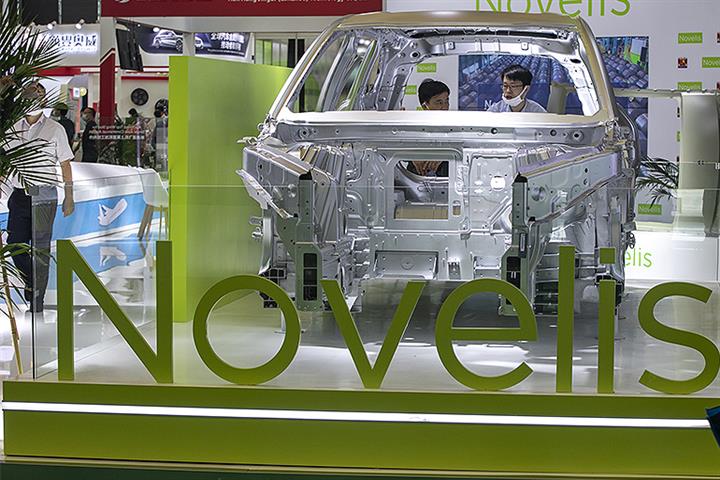
(Yicai Global) April 21 -- Aluminum rolling and recycling firm Novelis has high hopes for its China business, as the world’s largest new energy vehicle market is expected to put more emphasis on lightweight solutions and use aluminum to replace steel in electric vehicles.
“Lightweighting is going to be very key to electrification as well as innovation as the vehicle architecture changes, especially in the area of the battery box,” Jamie Zinser, vice president of global automotive sales and marketing at Novelis, told Yicai Global at the ongoing Shanghai Motor Show.
US-based Novelis already works closely in China with carmakers such as Tesla, Nio, and Jaguar Land Rover, said Sachin Satpute, president of Novelis Asia, helping them to innovate and develop lightweight and sustainable solutions.
The company spent USD148 million to build its first plant in China 10 years ago, in Changhzou, Jiangsu province, and invested USD180 million to double its production capacity in 2018.
In 2021 it announced an investment of USD375 million to expand the rolling and recycling capabilities at its Zhenjiang plant. The expansion includes a new recycling and casting center, which will allow the firm to implement closed-loop recycling partnerships with automotive customers in Asia.
Aluminum is emerging as the preferred choice for many automakers, especially electric vehicle makers, as its lower weight can extend the travel range. Statistics show that the mileage of a battery car can increase by 100 kilometers if the weight is reduced by 400 kilograms.
A report released in 2021 by the International Aluminium Institute said that use of the metal in the new energy vehicle sector is expected go grow exponentially as firms use it for battery packs, traction systems, and body parts. Besides, aluminum’s unlimited recycling characteristics allow it to form a closed-loop manufacturing process to minimize carbon emissions.
The surge in aluminum prices has had relatively little effect on Novelis, said James Liu, managing director of Novelis China and vice president of its Asia automotive business, as the company is a global manufacturer with many production bases worldwide, thus ensuring a stable and resilient supply chain.
China sold 6.9 million NEVs last year, accounting for 61 percent of global sales, after a 93 percent jump from 2021.
Editor: Tom Litting